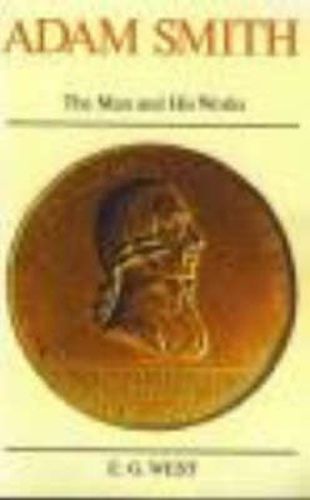Readings Newsletter
Become a Readings Member to make your shopping experience even easier.
Sign in or sign up for free!
You’re not far away from qualifying for FREE standard shipping within Australia
You’ve qualified for FREE standard shipping within Australia
The cart is loading…






E G West brings to life Adam Smith’s first years in the bustling Scottish seaport of Kirkcaldy (and recounts Smith’s brief kidnapping, as a baby, by gypsies). We follow young Smith as a student, watch his thought develop as Professor of Moral Philosophy at Glasgow, and enjoy with him the hospitality of David Hume, the Parisian literary salons, Johnson, Burke, Gibbon, and other giants of the era. West gives us a masterful summary of ‘The Wealth of Nations’. Even more significant, West restores to eminence an earlier work of Smith’s, ‘The Theory of Moral Sentiments’. If The Wealth of Nations had never been written, he asserts, this previous work would have earned for him a prominent place in intellectual history. West takes particular delight in using ‘The Theory of Moral Sentiments’ to rebut Marx’s assumptions about laissez-faire capitalism.
$9.00 standard shipping within Australia
FREE standard shipping within Australia for orders over $100.00
Express & International shipping calculated at checkout
E G West brings to life Adam Smith’s first years in the bustling Scottish seaport of Kirkcaldy (and recounts Smith’s brief kidnapping, as a baby, by gypsies). We follow young Smith as a student, watch his thought develop as Professor of Moral Philosophy at Glasgow, and enjoy with him the hospitality of David Hume, the Parisian literary salons, Johnson, Burke, Gibbon, and other giants of the era. West gives us a masterful summary of ‘The Wealth of Nations’. Even more significant, West restores to eminence an earlier work of Smith’s, ‘The Theory of Moral Sentiments’. If The Wealth of Nations had never been written, he asserts, this previous work would have earned for him a prominent place in intellectual history. West takes particular delight in using ‘The Theory of Moral Sentiments’ to rebut Marx’s assumptions about laissez-faire capitalism.